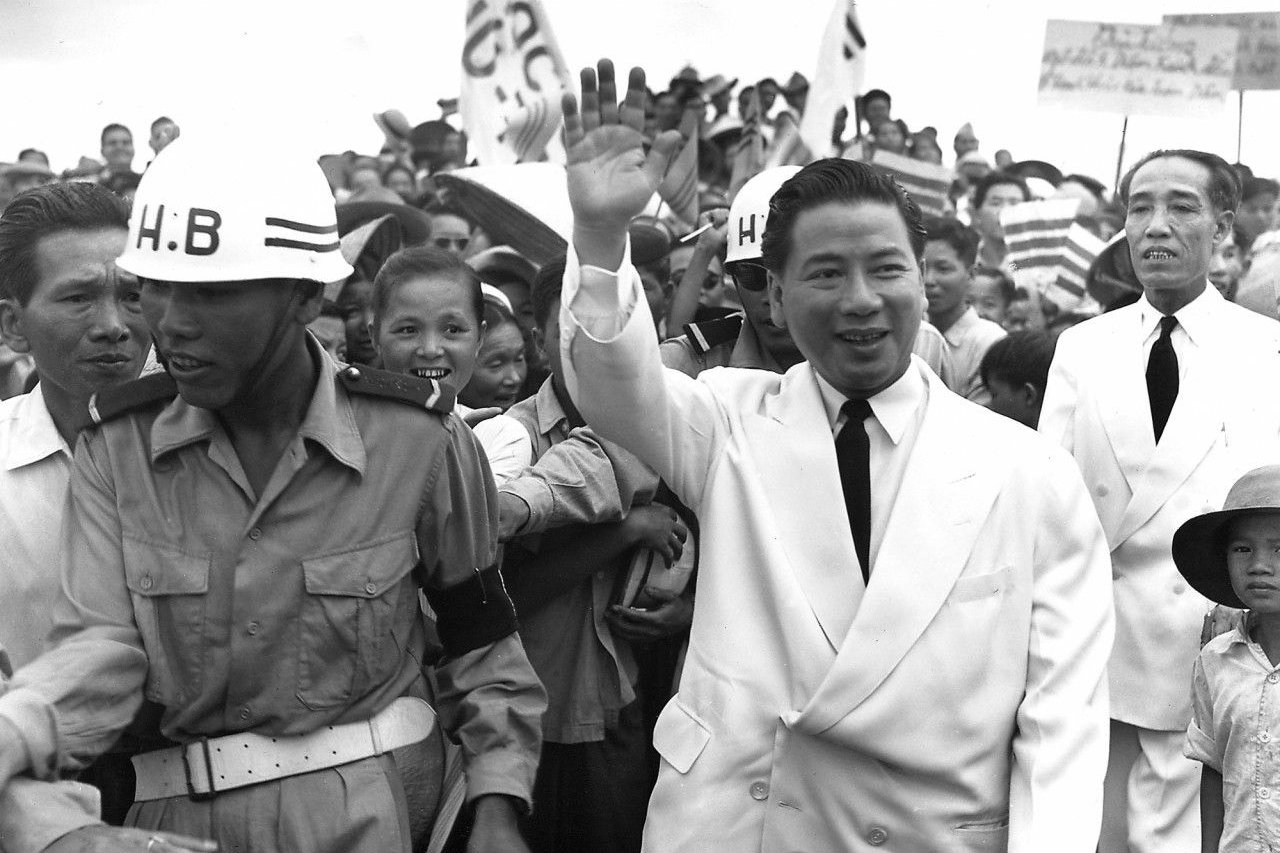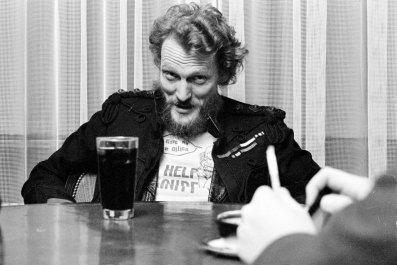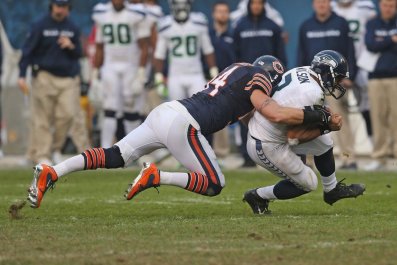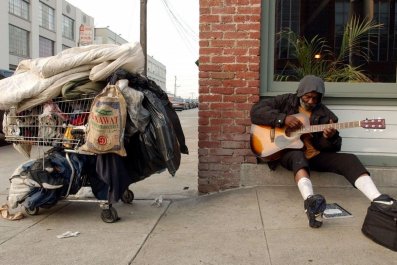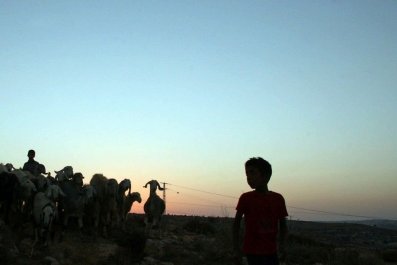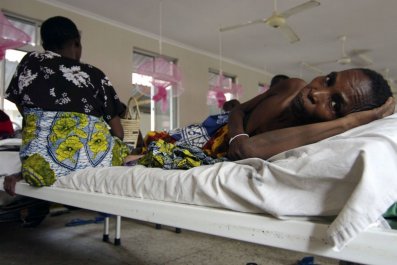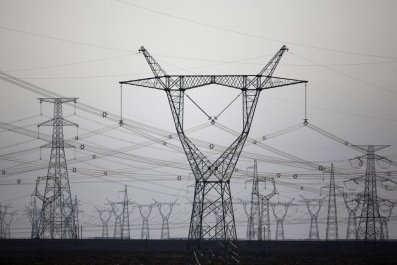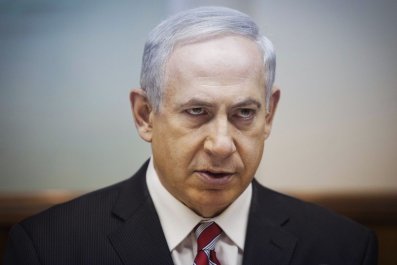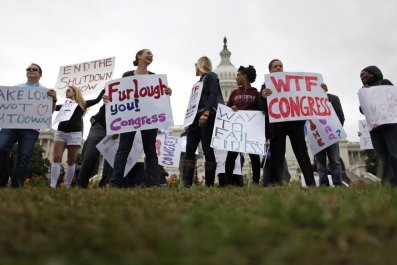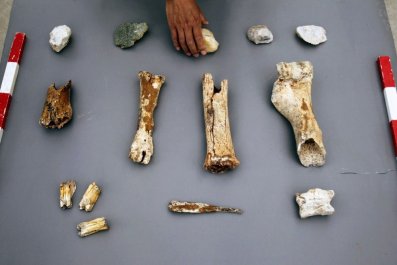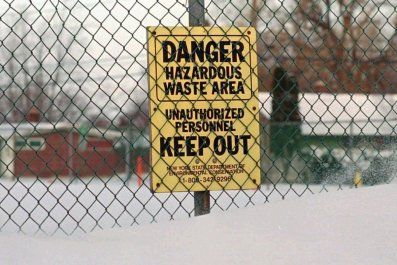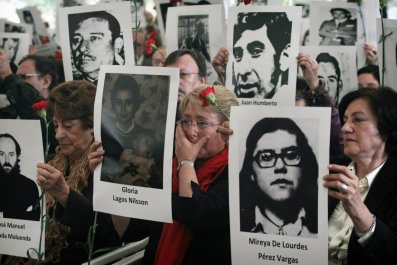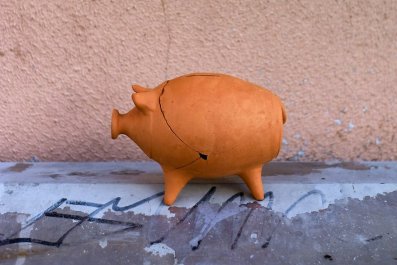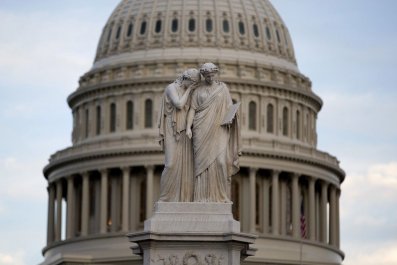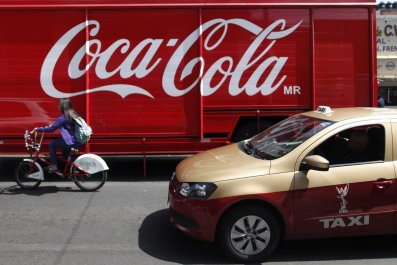President Barack Obama might be forgiven if he has moments when he fantasizes about killing Hamid Karzai.
Someday, notes from the Oval Office (or maybe even secret tapes) may reveal that Obama and his aides tossed around ideas on how to rid themselves of the Afghan president, who has returned the favor of being placed in power by looting Afghanistan's treasury, subverting the U.S.'s democratic goals for the country and consorting with its enemies.
Faced with a similar conundrum, President John F. Kennedy wrung his hands in the autumn of 1963, when the corruption and viciousness of the family Washington had helped install in power in South Vietnam threatened to hand the country over to the communists. There were no good choices in Vietnam, Kennedy observed as his secret microphones recorded the White House deliberations. "We're up to our hips in mud out there." Congress might get "mad" at him for conspiring with Vietnamese generals in a coup d'etat, he said, but "they'll be madder if Vietnam goes down the drain."
And so, 50 years ago this month, Kennedy let loose the CIA. U.S.-backed generals in Saigon overthrew and assassinated South Vietnamese President Ngo Dinh Diem and his brother Nhu, head of the regime's secret police, in the back of an armored personnel carrier.
Kennedy later said he was shocked at the murders, according to tapes assembled by historian John Prados at the private National Security Archive at George Washington University.
William Colby, who got close to Diem when he was the CIA's Saigon station chief in 1962, thought it was all a horrible mistake. "As Colby explained to me, he considered the Diem murder to be a case of a green-lighted coup gone very bad," Frank Snepp a former CIA analyst and author of Decent Interval, his memoir of the fall of Saigon in 1975, told me. "But he blamed the bloodletting on confusion among the Vietnamese coup-makers themselves over what the U.S. wanted."
So messy, these assassinations. And such an uncanny echo of King Henry II's infamous plea for someone, anyone, to rid him of Thomas Becket, the archbishop of Canterbury, over 800 years earlier.
Three weeks after Diem's demise, Kennedy was assassinated. And we all know now that the Kennedys had been plotting Fidel Castro's murder, too. (About a decade after the Diem assassination, a fanciful and beloved novel by former CIA officer Charles McCarry, The Tears of Autumn, posited that Diem's surviving relatives contracted with Castro to kill Kennedy in retaliation.)
The Saigon coup has hardly merited a footnote in the gush of books, movies and hagiographic television specials planned to commemorate Kennedy's assassination in Dallas 50 years ago in November. Yet the murder of the Diems arguably had a greater impact on American history than that of Kennedy, our most graceful, if ultimately feckless, president. The coup opened the door to a nightmare that ended up killing 58,000 Americans (and 1.5 million Vietnamese), ripped the U.S. apart and spawned a deep-rooted cynicism about the American political establishment that persists today. Casualties from land mines and Agent Orange, the herbicide, linger on, decades later
Thus President Obama needs be careful about what he wishes for in Afghanistan. One outcome of removing Karzai, the Diem coup shows, is that it could lead to something far worse. "JFK had no plans to engage American ground forces in direct combat with Vietnamese Communist insurgent forces," Walter "Mac" McIntosh, a retired CIA operative who has been a lifelong student of Vietnamese affairs from the time he arrived in Saigon in 1963, told me. But Kennedy's successor, Lyndon Johnson, cowed by all those smart Harvard boys JFK had brought to the White House, ended up sending U.S. ground troops into Vietnam. By 1968, demoralized by years of pinprick guerrilla tactics, those demoralized and often drug-addled troops were finally brought home in defeat.
Kennedy's removal of the Diems has generally been seen as a grave mistake. No less than Ho Chi Minh said he could "scarcely believe the Americans would be so stupid," according to a 2006 book, Triumph Forsaken: The Vietnam War, 1954-1965. North Vietnam's politburo was more blunt, according to that book's author, Mark Moyar. "Everything that could be done in an attempt to crush the revolution was carried out by Diem," the communists pronounced. "Diem was one of the most competent lackeys of the U.S. imperialists."
Most scholars dismiss that notion. South Vietnam, they say, was going under on the eve of Diem's removal, and the coup only delayed the inevitable. "The U.S. was on the losing side no matter which way they skinned the cat," says Thomas Bass, author of The Spy Who Loved Us, a wonderful biography of Pham Xuan An, the infamous communist mole imbedded in Time magazine's Saigon bureau. "Loose in the blogosphere is a lot of revisionist claptrap about Diem not being as bad as we thought he was," Bass told me. "Sorry — he was as bad as we thought he was, but killing him didn't get the U.S. anywhere either."
Judging by the results of the U.S. removal of Iraq's Saddam Hussein, the lessons of November 1963 were lost on George W. Bush and his neo-con advisors. But Obama seems to have taken heed.
During his 2008 presidential campaign, Obama travelled to Iraq and Afghanistan with two senate colleagues, both veterans, one of them now secretary of defense. The future president kept asking them about the war, according to one account: "What could we learn about Vietnam that should now be applied in Afghanistan?"
By putting up with Karzai, and resisting pressure to overthrow Syria's Bashar al-Assad, this president suggests that he has learned from the murder of Ngo Dinh Diem.



